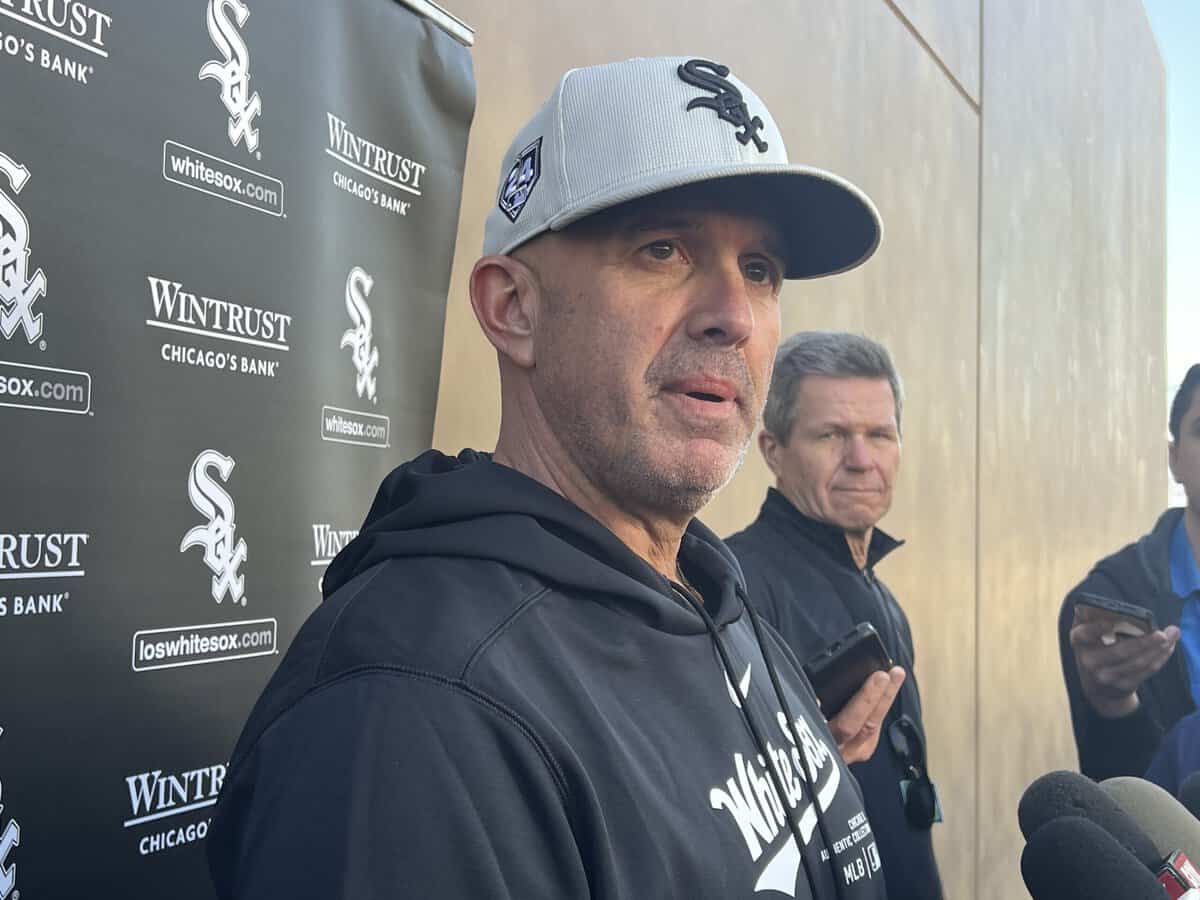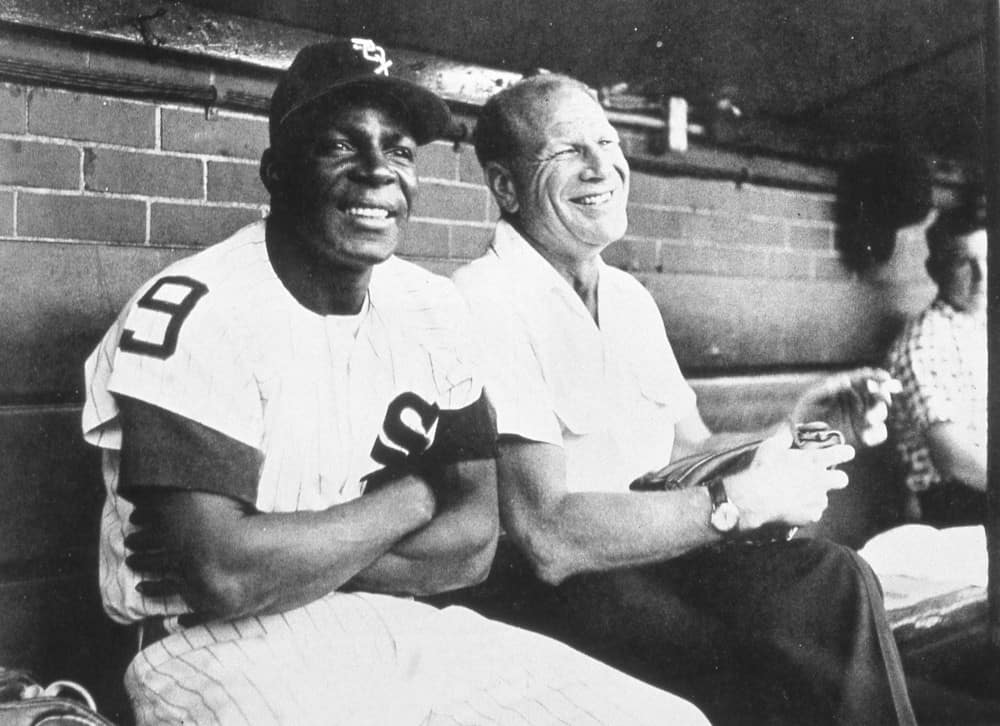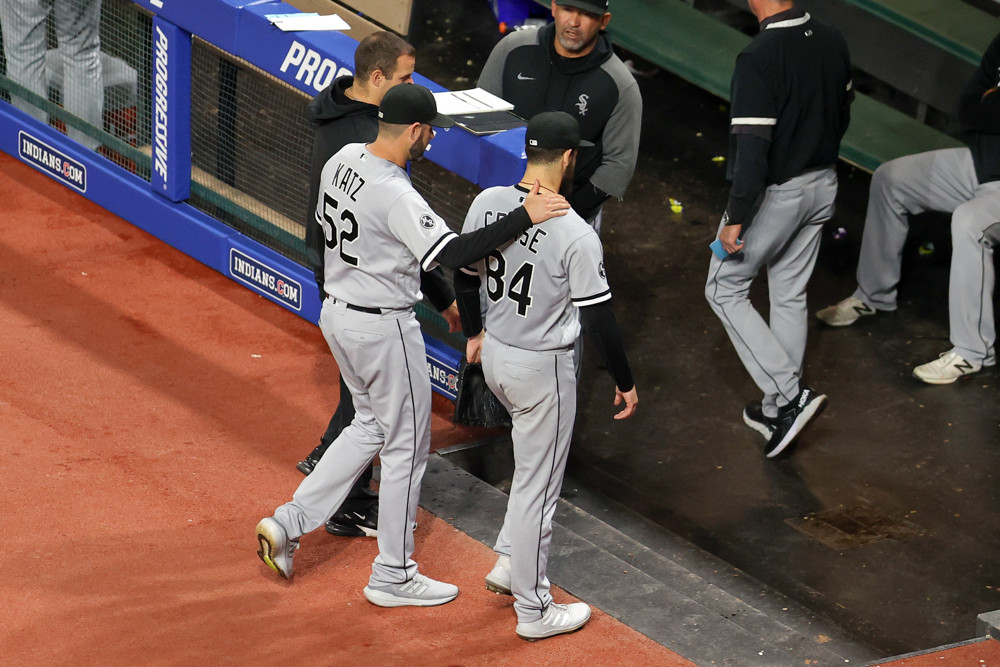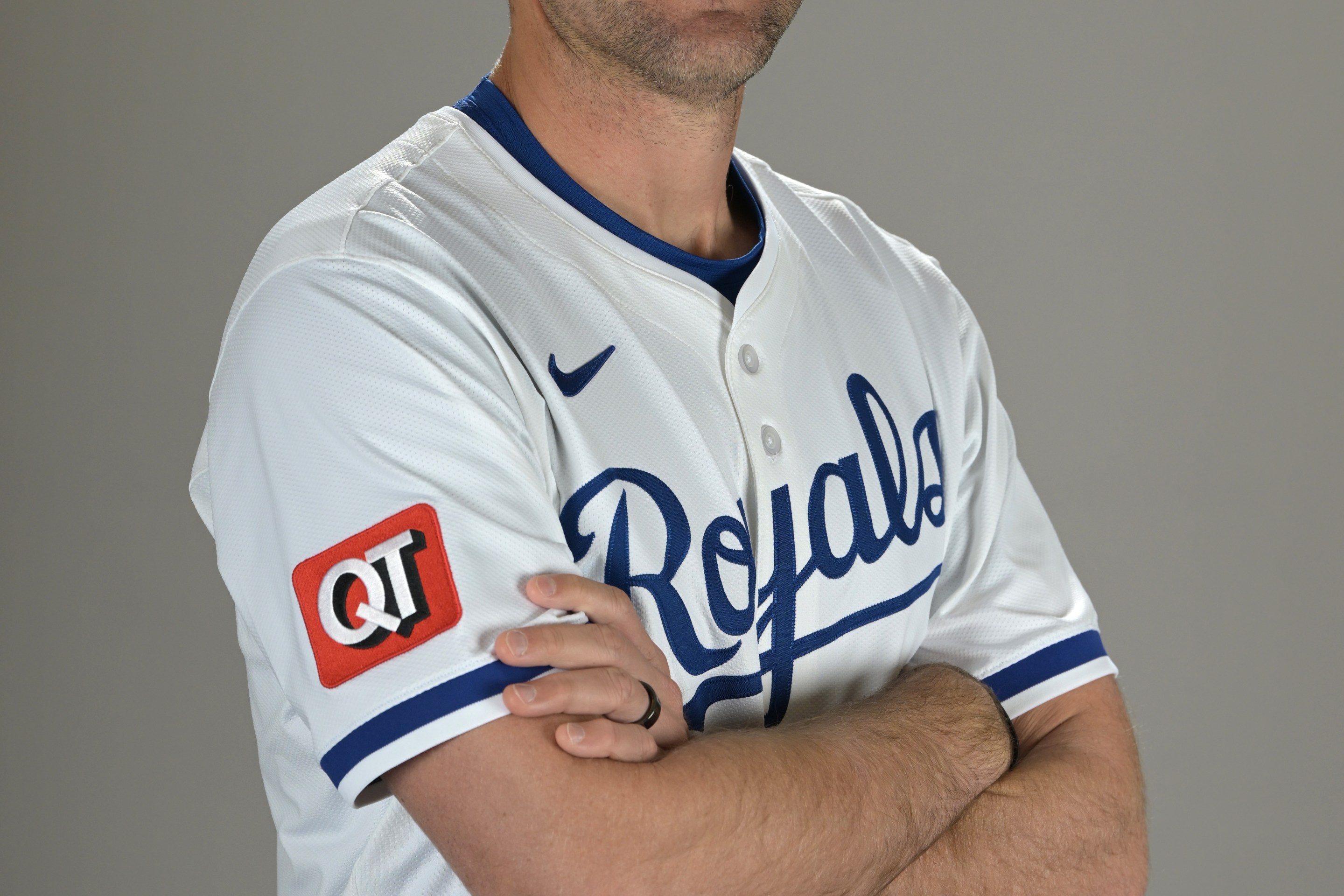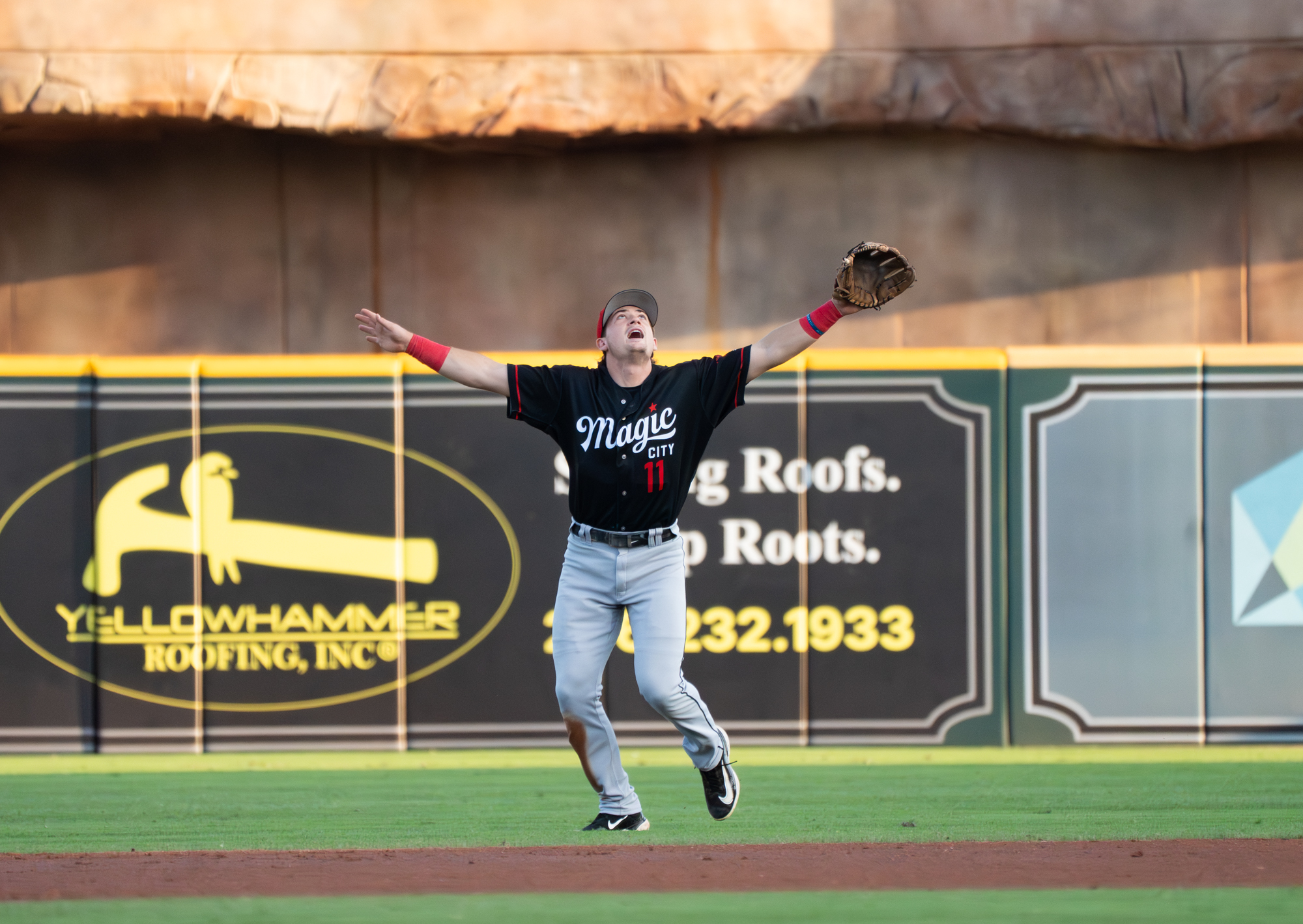My good friend Matt Gelb recently wrote a piece about the two transformative years since the Phillies moved Rob Thomson to the manager role, and how a culture of trust and honesty replaced an environment where many felt it was hard for young players to grow, and harsh consequences were feared for every on-field mistake.
Sitting in his office at Guaranteed Rate Field for 45 minutes, it's something you can imagine White Sox manager Pedro Grifol aspiring to as he details his unwavering belief in Andrew Benintendi in spite of a career-worst start. How his having witnessed Benintendi play and thrive amid nagging injuries in the past in Kansas City fortified his trust that the player would inform him if and when his sore Achilles -- or any other malady -- rendered him physically incapable of playing at a high level. Or how he rebutted a comparison to sticking with a struggling Tim Anderson through knee pain all last season, by reiterating that he still expects Anderson to return to form as well.
"You believe in the player, you believe in the track record," Grifol said. "It's interesting to me that sample size is used for the benefit of whoever has the opinion. Because if a player has short-term success, well it's a small sample. If a player has long-term success but he's having short-term adversity, all of a sudden we have an overreaction? So how is large sample and small sample used? To the benefit of whatever you want to believe in?"
Trust is an essential tool for any manager over the course of a six-month season, but in contrasting the best-in-baseball Phillies and worst-in-baseball White Sox, one line from Gelb's piece about Thomson stands out (emphasis mine).
“He’s the right person, for this time with this group.”
For while trust for Thomson might look like sticking by Trea Turner through a slow start to the 2023 season, for Grifol it's touting Martín Maldonado's intangible defensive value while passing on tangibly superior options for a specifically important offensive opportunity, or touting Michael Kopech's (or Reynaldo López's) elite arsenal as they take on water while pitching the most challenging inning of every night. Or it could be citing injuries to Luis Robert Jr. and Yoán Moncada as acutely destructive to a preseason vision of an above-average White Sox defense, that is instead rated as worst in the league by multiple metrics.
Grifol describes an environment where trust is absolute, where his belief in the White Sox dedication to winning as an organization is unshakable. He wields trust as a motivation tool for players, operating on the notion that putting himself out on a limb in public and stating his belief in straggling members of a last place roster has greater impact than just assuring them in private that he has their back. Perhaps his love of this route only made a tactical flip to call out the roster for being unable to hit Kyle Bradish more jarring.
Right now, a front office group that didn't make the call to hire Grifol is preparing to trade out key pieces of a roster that looks uniquely suited to play six or seven functional innings, before the game reaches the unfinished part of the building and the floor collapses beneath them. Grifol expresses trust in this too, beginning an answer to a question of what his team needs to become competitive with "time."
"There's talent here, and obviously Chris and the front office got their vision and they need a little time to bring that to fruition, and we need time to develop these guys, that's the reality of it," Grifol said.
The front office methodology, whether motivated by philosophy or finances, leaves Grifol with a roster drastically less likely to reward his trust than Thomson's group. Grifol opted not to delve into a question about whether he's been put in a position to succeed, but he's one of the few people who truly has to wear the 17-50 White Sox record as an indicator of his ability as a major league manager; the job for which he spent over a decade striving.
There are a host of acquisitions that haven't worked out, but Chris Getz is engineering the teardown that a barren farm system required, and weathering the down season that comes with it. Rookie reliever Jordan Leasure's fastball and approach angle tout qualities that project well beyond the pain of a walk-off grand slam to Cal Raleigh. Both will get the time to overwrite their resumes.
Grifol's record, however, extends into last season, and that drastic disappointment has been followed by what looks like the worst White Sox team in history. Now Grifol easily has the worst winning percentage (.341) of any manager the franchise has ever entrusted with a full season, and additionally speaks on record twice per day about seeing the light at the end of a dark and dreary tunnel. Again, he trusts that is how he will be judged, and expresses comfort with it.
"That's what this level is about, and I'm really good with it," Grifol said. "I won't ever expect anybody to evaluate us any other way."
Since Grifol espouses the dedication of his coaching staff, pulls out a thick file full of heat maps and spray charts to demonstrate the depth of his daily preparation, and expresses absolute confidence (or trust) in his abilities because of his long and storied collection of career mentors, does he not have a closely-held belief that this is the wrong way to evaluate him?
"Doesn't really matter," Grifol replies. "It's never going to change. James, that's never going to change. This is about wins and losses. That's what this is about."
Under Grifol, the White Sox have lost at a level rarely approached even at a franchise that has had its share of dark periods. More successful skippers than him have been slapped with the label of "rebuild manager" and excluded from consideration of helming a contending team. And the White Sox seem to be specifically loading up for years beyond the life of Grifol's three-year contract, about which he faces at least weekly questions on whether he'll see it through.
If he were still a farm director, since he's been one before, would Grifol want his future core pieces up in a losing environment, full of players or even coaches who potentially are not long for the organization? He said it would depend, until it's clear it's not an open-ended hypothetical, but a question specifically about the clubhouse he oversees right now.
"Not at all. These guys out there are phenomenal," Grifol said. "You do this for a few reasons. No. 1: to win, right? And if winning is not happening in the midst of this adversity, what do you got? What do you have? You have opportunity. You have incredible opportunities, to go out there and show this organization that you belong in that clubhouse when we win, right? And show the industry that you belong with the best in the world on a nightly basis. Incredible opportunity."
And every day left in the managerial chair is ostensibly an opportunity for Grifol. As much as he touts wins and losses as the only true barometer, he touts improvement as the day-to-day goal of the coaching staff. When Grifol was first hired and I surveyed all his past mentors and colleagues, a sponge for knowledge was promised. Reminded of his friend Raul Ibañez's old quote that he would improve at the job every month, every day he was in it, Grifol did not hesitate to pronounce that he has, and that he's "night and day" better at managing than he was at the start of last season.
"I'm always on the hunt to improve," Grifol said. "Thick skin when it comes to people telling me things that I need to hear to make me better. Don't have a problem with it, whatsoever. That's how I know I'm going to continue to improve. And the people that know me really well, like Raul, that's why they say that."
Grifol flips the question to me, and whether I feel like he's improved as a manager, and like most reporters turned into interview subjects, it sends me sputtering. I was sidelined last June, before whispers of the clubhouse fracturing transitioned to open shouting. A number of White Sox employees reached out to offer their sympathy and support, but Grifol was one of a few to call. He gets pilloried for his media comments now as much as he did last year, but regularly assigns himself to defend the indefensible, often after the on-field results have already primed his audience to believe he lacks the correct answers. And this conversation only further convinced me he's the type to view putting his reputation on the line in defense of a struggling player, or even uniting his clubhouse in umbrage to his criticism, as a worthwhile tactic.
The through-line seems to be that what he emphasizes doesn't come to pass in the game. Last year's team swung at everything, despite his emphasis on utilizing data and advanced technological training methods to improve swing decisions. This year's club throws to the wrong base regularly, despite a spring where an investment in fundamentals was supposed to raise the floor for performance. Perhaps I have no more tools to evaluate Grifol than anyone else. But luckily he says those results are the only ones that matters, while espousing trust that at some point it will stop getting worse.
"We put on the uniform, we have a responsibility, and we should have an appreciation to where we're at, and our responsibility to the fans," Grifol said. "I hear them screaming out there. They're not happy, and they shouldn't be. They shouldn't be, but they will be at some point."
